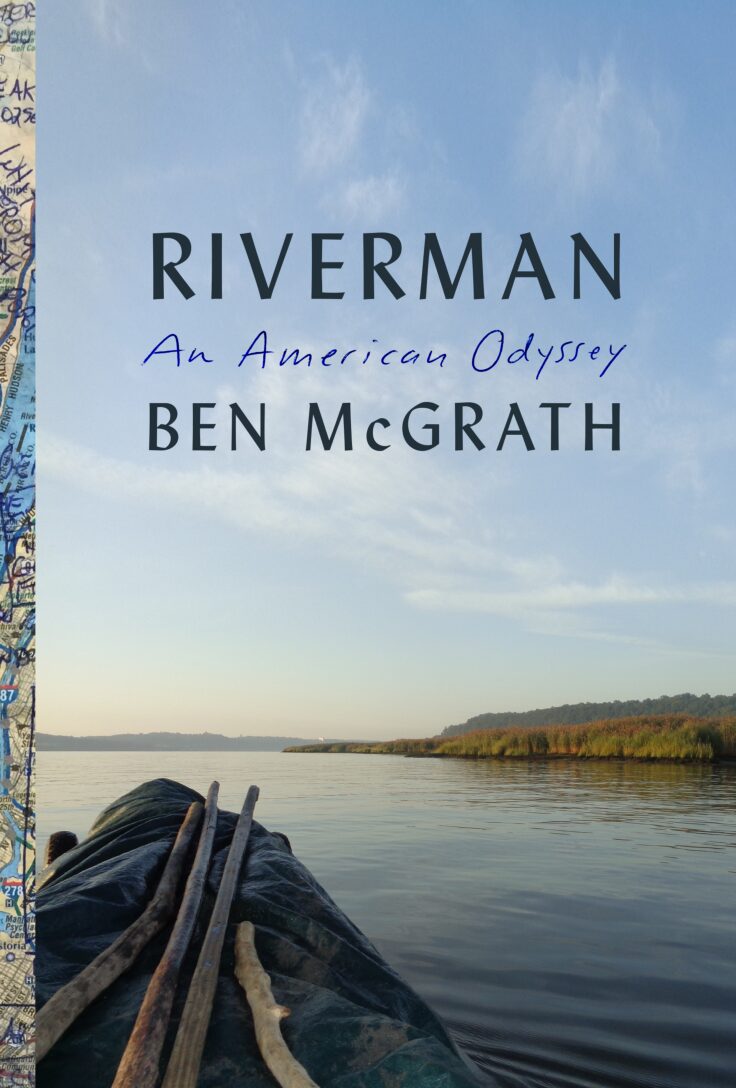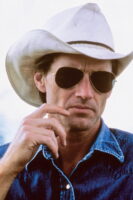As he paddled the great rivers of America, Dick Conant counted. Numbers lent structure to the endless strokes and days, and staved off boredom. He made a game of reaching key figures—palindromes and years with historical significance (abundant in his encyclopedic memory). Conant also marked dates from his own life. In 1972 he slept on a featherbed in a Bavarian farmhouse. In 1999 he met the love of his life, resigned from his job and set out on a canoe journey.
He cut a rare figure as he travelled on the Missouri, Yellowstone, Ohio and Hudson rivers. A bearded giant of a man, Conant resembled “Santa Claus crossed with a lobster, in overalls,” according to one observer. He sipped Tabasco sauce from the bottle and swapped his boots between his feet for extra wear, like a motorist rotating tyres. A hoarder, he travelled with books, coolers and a mobile phone he didn’t use: nearly enough detritus to sink a 14-foot canoe. Also aboard were the atlases that doubled as journals, in which Conant recorded details of the people he met.
They remembered him, too. As Ben McGrath of the New Yorker writes in “Riverman,” the impression Conant made is what made his life extraordinary. He was a good listener; after a few hours in his company, people were drawn into life-changing conversations. “How could a stranger have such an effect on me?” wondered a tearful woman who never caught his last name. It was as if “he had all the knowledge in the world,” said another. “He cut me right to the heart,” said a man who spoke about his ailing father to the kind traveller.
Before 1999 Conant’s life meandered like the rivers he came to love. A military brat, he grew up in middle-class comfort and went to university. Yet signs of alcoholism and mental illness flashed. Medical schools turned him down. He spent time roughnecking in the American West and in the navy. Bar fights and a drunk-driving arrest kept him from finding respectability, for all that he was educated and thoughtful. So he took to the water.
Mr McGrath tells Conant’s story in an affecting book that calls to mind “Into the Wild” and “Nomadland,” two other peripatetic tales. Little distinguished a dull day in the canoe from an exquisite one. Simple pleasures abounded, like the way a slow drift south extended the autumn foliage. Conant knew if he stayed anywhere too long he might seem an awkward vagrant. “He often departed towns abruptly, without proper goodbyes, seizing on the weather as an excuse,” writes Mr McGrath. Perhaps he wanted to maintain a bit of mystique. Then again, goodbyes can be hard.
Conant was planning his retirement when the author met him by chance. His final river voyage was to take him from Canada to Florida. But in 2014 he disappeared near North Carolina’s border with Virginia; his body has not been found. This gives the story a melancholy air. Yet “Riverman” also brims with the rich possibilities of a fully lived life and expectations exceeded. One fellow voyager who drifted alongside Conant for less than an hour remembered him keenly. He left behind “memories all over the place. We all could be so lucky.”







